This review contains mild spoilers.
Finally, Andrew Haigh has made a film that answers one of the most pressing questions on all of our minds: what if THE SIXTH SENSE happened to a depressed gay guy? Adam (Andrew Scott) is a lonely screenwriter who lives in a nearly empty London apartment complex. The only people he sees include his hot neighbor Harry (Paul Mescal), who drunkenly stumbles into Adam’s apartment one night for some “connection,” and his parents (Jamie Bell and Claire Foy).
At least, Adam can see his parents when he writes about them for a screenplay. Adam’s parents died in a car crash when he was young, but he is able to communicate with them through the transformative powers of writing. In Adam’s mind, he takes the train from London back to the suburbs where he grew up to visit his parents at his childhood home. Adam is able to finally come out to his mum as gay, which doesn’t go over well at first, since she’s been frozen in time with the same homophobic beliefs since she died in the 1980s. After some uncomfortable conversations, however, they are able to find understanding and acceptance. The conversations with Adam’s dad (who looks remarkably like Harry) regarding Adam’s sexuality are even more uncomfortable. “Why didn’t you tell me you were being bullied at school?” Adam’s father asks. “Why didn’t you come into my room at night when you heard me crying?” Adam retorts. These ghostly confrontations of past childhood troubles help Adam to work through his feelings of morose misconnection in the present.
Through his writing, Adam is able to achieve the ideal situation: to heal from his dead parent trauma enough that he is able to accept love into his life. Adam and Harry start spending a lot of time together, sharing both cozy evenings in and molly-fueled neon nights out. Their sex life heats up, and for the first time in his life, Adam has a boyfriend. Most importantly, Adam is able to open up to Harry about the deaths of his parents in a way that he has never been able to open up to anyone, except in his screenwriting. For Adam, it feels as if he can finally move past the trauma of his parents’ death and forge a new future.
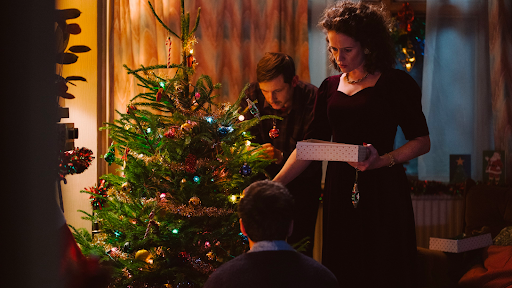
All that stuff about the transformative powers of writing? Just kidding! Adam may have been writing at one point in the film, but the screenplay never materializes, and it turns out Haigh has pulled the wool over our eyes—Adam has believed that he has been spending time with his parents in reality this whole time. This is revealed when Adam brings Harry to his old house to meet his parents, and Harry quickly realizes, as we realize, that Adam is actually batshit crazy. This could have gone in a really interesting direction by shifting the perspective from Adam to Harry—what do you do when someone you love suffers from a psychotic break? But it doesn’t go there, instead opting for a cheap, Shyamalan-style twist.
This isn’t a scary ghost story, it’s a sorrowful one, and not because of anything Haigh has laid out, but because he is expecting the audience to project all of our sadness about the mortality of our own parents onto these vessels. This would make for a pretty solid melodrama if it weren’t for Haigh’s unwise decision to not only abandon Adam’s screenwriting, but to also veer sharply into voodoo territory for a third act that doesn’t take advantage of the genre trappings that come with horror. I’m not asking for BEETLEJUICE levels of ghost-parent tomfoolery here, but for a plot that leans so heavily into the presence of the supernatural, there are too few chills or thrills. In his indecision regarding whether he is making a romantic drama or a horror/fantasy film, and in his failure to blend these genres successfully, Haigh has created a Frankenstein’s monster of sadness and doom: half-cooked relationship drama, half-baked dead parent fantasy.
ALL OF US STRANGERS is loosely based on the 1987 Japanese novel “Strangers” by Taichi Yamada. The novel has been previously adapted into a film called THE DISCARNATES by HOUSE director Nobuhiko Obayashi in 1988. If Obayashi knows one thing, it’s how to use horror genre thrills to his advantage; I wish I could say Haigh has taken a page out of Obayashi’s book, but that is certainly not the case. In Yamada’s novel, the dead parents feed off their live son’s energy, like vampire ghosts, while in Haigh’s film, the opposite is true. Adam’s parents have pained looks in their ghost eyes that seem to ask, “Won’t you let us go?” They want to rest, and for their son to move on. Since Adam’s romantic interest Harry is entirely Haigh’s creation, ALL OF US STRANGERS is an example of a straight story being adapted for gay characters.
Whereas WEEKEND, Haigh’s more deftly crafted 2011 film about a one-night stand that deepens into something more, is a wholly original dramatic love story, ALL OF US STRANGERS tries to squeeze gay characters into straight holes, for lack of a better term. Much of WEEKEND’s photography was lifted to make ALL OF US STRANGERS; one man yearns for another from the top of an apartment complex, gazing at the man he wants standing in the courtyard. What made WEEKEND so revelatory was its ability to create beauty between two strangers, which we should be able to expect from a film with a title like ALL OF US STRANGERS. The sex scenes in ALL OF US STRANGERS are hot because Andrew Scott and Paul Mescal are both hot, not because they share any real chemistry. There’s very little intimacy or trust there. A lot of WEEKEND’s stunning chemistry stems from the improvisation of Chris New, whereas the genre-heavy scenario for ALL OF US STRANGERS leaves little room for moments of spontaneity.
Haigh’s controlled direction leaves Scott few chances to play around with his acting choices, which is what makes his performance as the hot priest in FLEABAG so magnetic. Phoebe Waller-Bridge’s writing and direction there allows for both the grief and natural humor to seep through. It’s not that onscreen romantic chemistry needs to be fully improvised to shine, but the stifled and depressing genre elements need to not hinder the actors’ ability to create chemistry through happenstance. I was under the impression that as a collective, we were tired of wading our way through narratives that harp only on queer suffering, but the praise ALL OF US STRANGERS has been receiving makes me think otherwise.


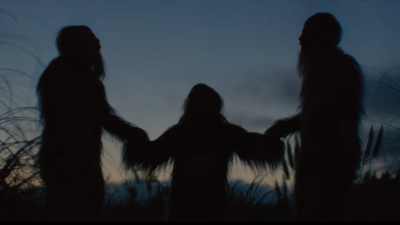
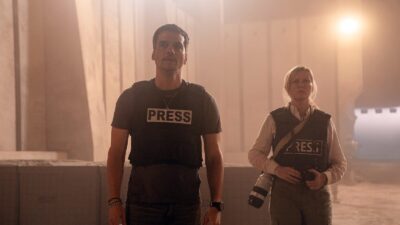
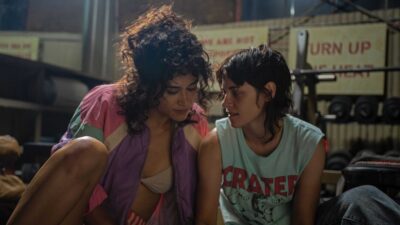






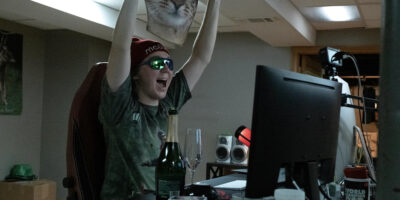
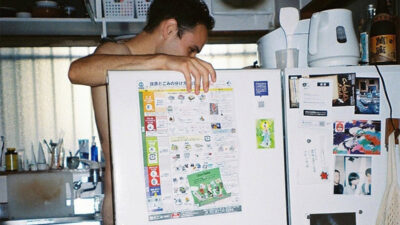

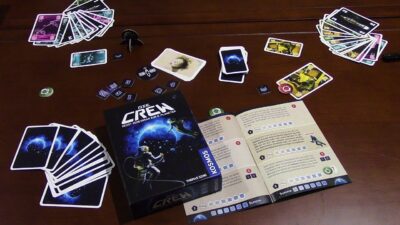
Comments